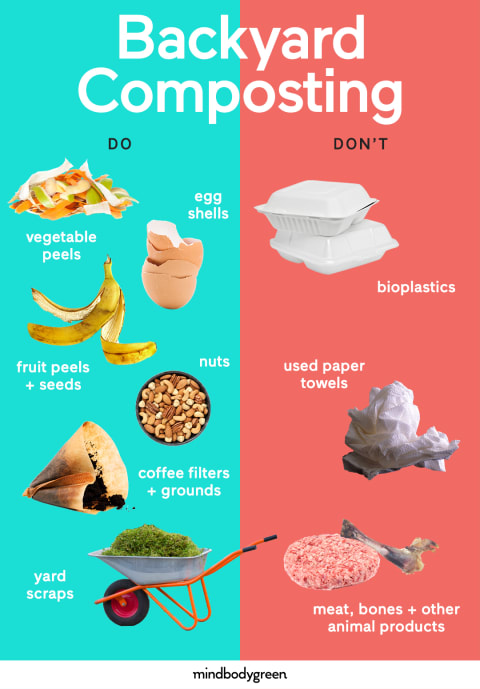So while some of the things on this backyard no-no list are technically compostable, the newbie composter would be better off leaving them out. Keeping your compost scraps in the freezer before sending them off to a facility can help minimize any funk. “Keeping it in the freezer prevents it from smelling or bugs or anything like that,” Jhánneu Roberts, the founder of Low Waste Beauty, says of her experience storing compost in her L.A. apartment. She’ll also get another use out of vegetable scraps by cooking them down in water to make a broth before tossing them in her pile. Whether you compost your food scraps in a backyard or send them off to an industrial setup, you’re doing the planet a solid. Just be sure you’re not accidentally tossing anything that might contaminate your pile by reading up on basic compost do’s and don’ts and checking in with your commercial facility if you’re going that route. Emma received her B.A. in Environmental Science & Policy with a specialty in environmental communications from Duke University. In addition to penning over 1,000 mbg articles on topics from the water crisis in California to the rise of urban beekeeping, her work has appeared on Grist, Bloomberg News, Bustle, and Forbes. She’s spoken about the intersection of self-care and sustainability on podcasts and live events alongside environmental thought leaders like Marci Zaroff, Gay Browne, and Summer Rayne Oakes.



